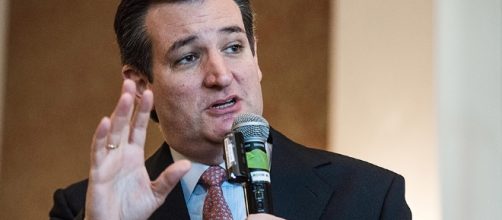Recently, Sen. Ted Cruz, R-Texas got into a heated twitter exchange with the chair of Harvard University’s American-studies program, Joyce Chaplin, over the question of how the United States was created. Chaplin claimed that the international community created the United States with the Treaty Of Paris in 1783. Cruz retorted that the Declaration of Independence along with the courage of the Continental Army created the United States and that the treaty was just a recognition of a fact that had been ongoing for seven years.
A Harvard professor weighs in on the origin of the United States
Chaplin started the argument when she tweeted, “The USA, created by int'l community in Treaty of Paris in 1783, betrays int'l community by withdrawing from #parisclimateagreement today.” The tweet was a bit snarky and logically shaky, to put it mildly. The Paris climate agreement was never ratified as a treaty by the United States Senate but rather was signed as an executive agreement by President Barack Obama. President Trump had every right to withdraw from the accord, in the same manner, it was entered into. Indeed any treaty has a clause for parties to leave the agreement. The United States has exercised this right a number of times in the past.
Senator Cruz responds
Cruz, seeing Chaplin’s tweet, responded with one of his own. “Just sad. Tenured chair at Harvard, doesn't seem to know how the USA was created. Not a treaty. Declaration+Revolutionary War+Constitution=USA.” That statement was certainly the view of the founding fathers. The United States was a free and independent country from the moment the Declaration of Independence was signed.
That the British Crown did not recognize that fact and sent troops to invade their former colonies did not alter that view. Indeed, France and other European countries tacitly recognized the independence of the United States by supporting it with troops and money long before the Treaty of Paris. Britain was isolated diplomatically by insisting that they were fighting rebellious colonials.
The exchange gets a little ugly
Chaplin responded by reiterating the idea that national statehood requires an agreement by the international community. The point made is debatable, since a lot of nation-states have started out with a lack of international recognition. Israel, for example, spent the first decades of her existence without recognition by her Arab neighbors. In any case, France, Holland, and Spain had already recognized the young United States. The Treaty of Paris merely required Great Britain to do so.
Cruz, apparently losing his temper, responded by repeating his point and then suggesting that Chaplin is a “lefty academic.” He later added that the Treaty of Paris memorialized the fact of American independence which was confirmed at the Battle of Yorktown. But the gibe about “lefty academics” only served to end the discussion without coming to a conclusion.


